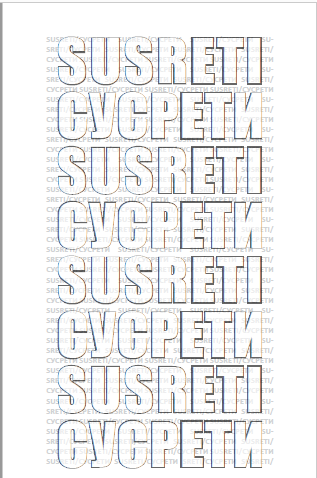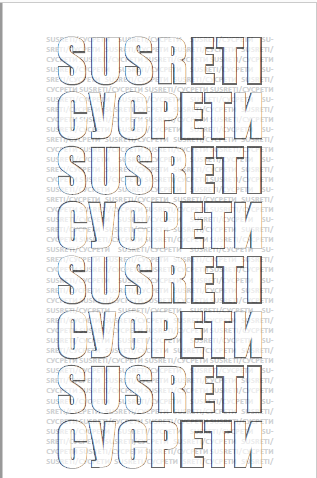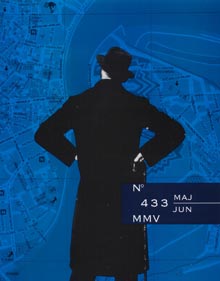
BEZ NASLOVA
JERG (uzdah): Mama? MAJKA: Šta je bilo, Jerg, šta? JERG: Ja... Ja više ništa ne vidim... MAJKA (snažno): Nije istina. Nije istina. To je samo krv iz nosa. To je samo ta krv. To će odmah proći...
More...We kindly inform you that, as long as the subject affiliation of our 300.000+ articles is in progress, you might get unsufficient or no results on your third level or second level search. In this case, please broaden your search criteria.

JERG (uzdah): Mama? MAJKA: Šta je bilo, Jerg, šta? JERG: Ja... Ja više ništa ne vidim... MAJKA (snažno): Nije istina. Nije istina. To je samo krv iz nosa. To je samo ta krv. To će odmah proći...
More...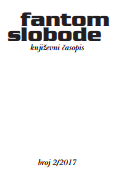
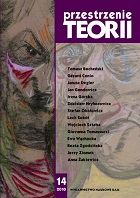
Dawno zauważono, że bohaterowie utworów Witkacego, w szczególności bohaterowie dramatów, tworzą zamknięty świat o szczególnych właściwościach klasy stereotypów. Wydaje się, że pisarz w nieustannym poszukiwaniu zbliżenia do nieosiągalnej w dramacie (nie mówiąc już o powieści) Czystej Formy powtarzał samego siebie, uparcie przymierzając teoretyczne założenia do możliwości gatunku. Dostrzegł to już Boy1, a z grubsza opisał Irzykowski, podzieliwszy bohaterów na dwa zasadnicze typy: 1) „kolosalne, mądre i brutalne Bydlę” i 2) „eleganckiego dekadenta”2. Irzykowski dodał przy tym, tonem ni to zarzutu, ni to usprawiedliwienia, że w tym „stawianiu” normalnych postaci jest „jeszcze dość zadań starej dramaturgii”. Uwaga słuszna. Niesłusznie tylko Irzykowski wyciągnął z tego następujący wniosek: Witkiewicz „sercem tkwi w przeszłości, rozwiązuje sobie nawet po swojemu problemy i problemiki życiowe, zamalowuje to sosem futuro-formistycznym”. Konstanty Puzyna w swym fundamentalnym".
More...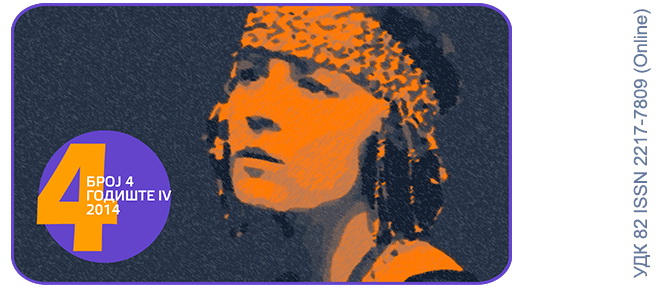
Usually, the confrontation with the West legitimizes the identity dilemmas and the interior construction of the individual profile. Florin Manolescu's diary points out the authorial facets in a double-oriented perspective - identity itself, now renegotiated and literature itself, by means of the dialogue with the great representatives of the Romanian exile.
More...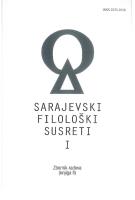
The paper deals with political comedy / satire and classical comedy Djelidba by Skender Kulenović, the text which marked the period of Yugoslav socialism after the Second World War in Bosnian-Herzegovinian and Bosniak literature. In this connection, the author analyzes mutual relations between the two versions of this text, investigating their satiric and/or comic potentials
More...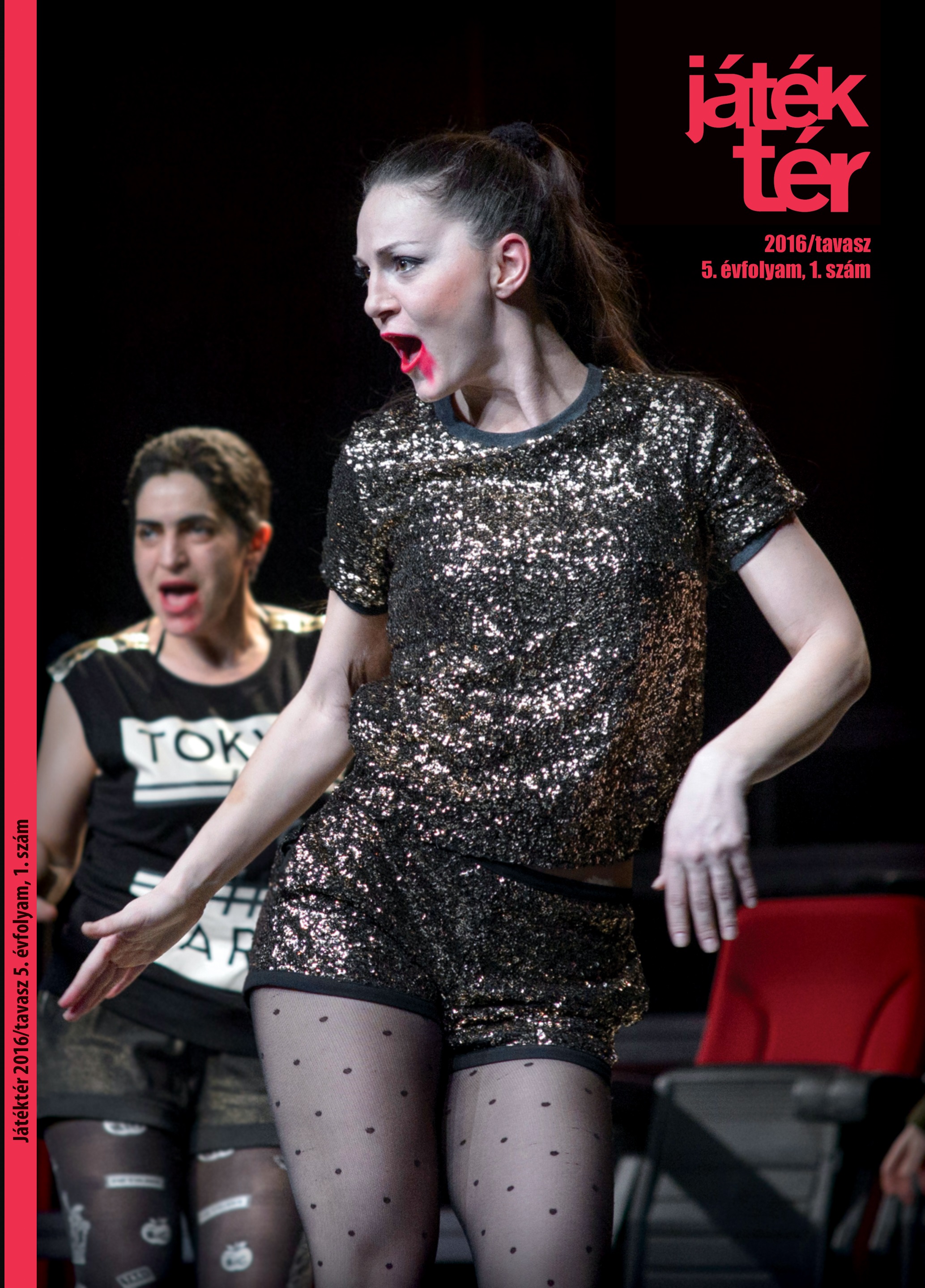
Michal Dočekal directed Kafka's America at the Hungarian Theatre in Cluj. According to Tamás Lovassy Cseh's review, the stage interpretation of the novel results in a slowly owing, symbolically en- coded, strongly visual performance, which can be perceived rather as a hommage to the Kafka oeuvre - without touching upon the functioning of power-structures or the vulnerability of common people.
More...
Kinga Boros translated Gianina Cărbunariu's monodrama, Metro is everywhere for the drama section of this issue. With a characteristically precise sense, the author does not describe the main protagonist in detail, and we only nd out from the online character list that "The woman" is in her thirties. Almost with the swiftness of a running metro train, the monologue creates "The woman" as an upper-middle-class white female, only to decompose these contours later - as we travel through the capital intersecting various social groups. The character with whom we can easily identify, with whom our desires urge us to identify because she seems to be a winner in this familiar capitalist world, will turn out to be an unemployed loser. Far from being merciful, Cărbunariu's text is a disillusioned, desperate social panorama, the strongest affirmation of which is the presentation of the female perspective on the general loneliness and lack of solidarity.
More...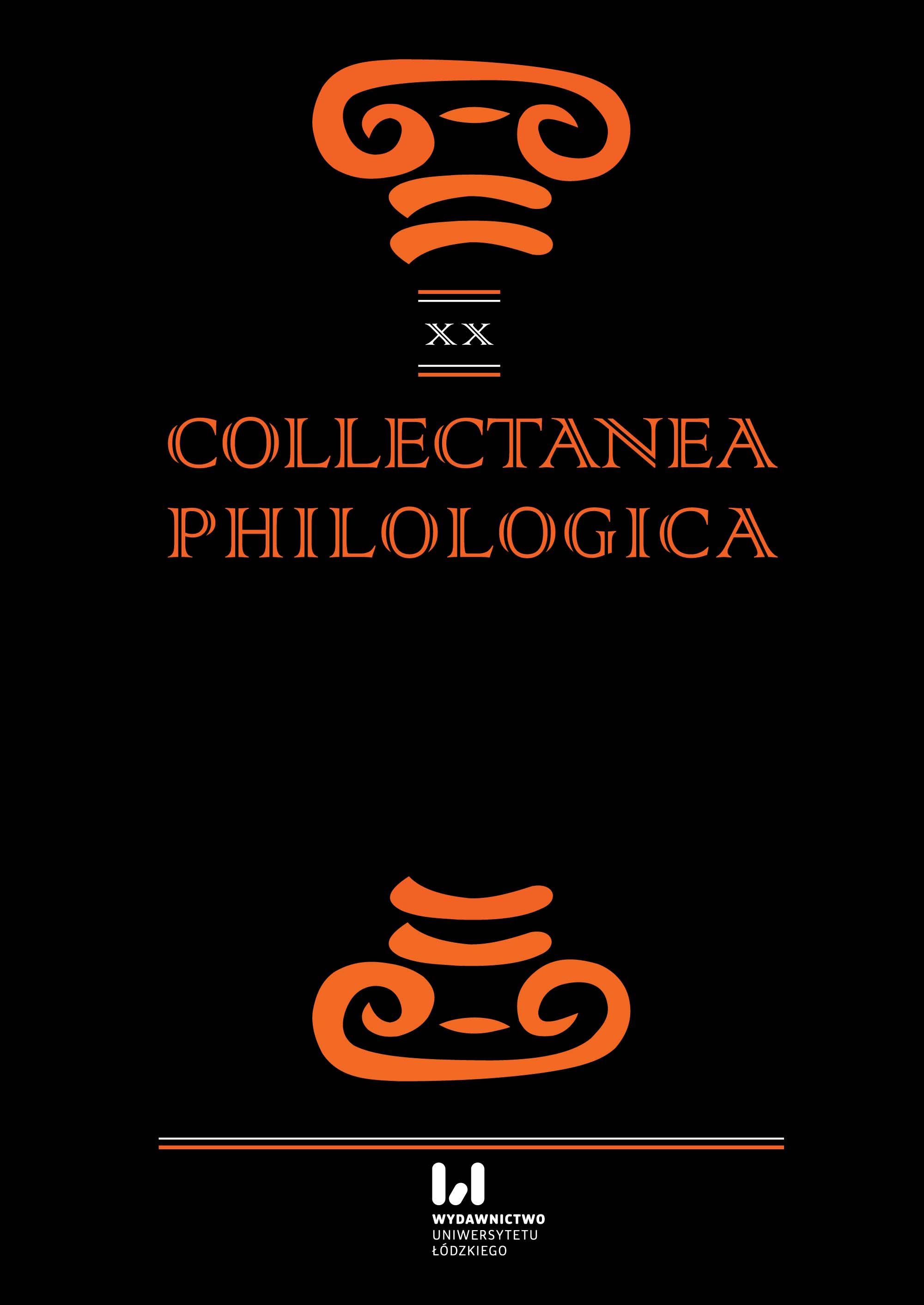
The present paper tends to analyze the procedure of intersemiotic translation of ancient myth of Phaedra, in its written version by Euripides (Hippolytus), into the contemporary stage production of Phaedra by Maja Kleczewska. The analysis of the performance is preceded by the extended introduction regarding reception of myth in general, and reception of Phaedra myth in particular. In this context, theories of Hans Blumenberg and Gilbert Durand are recalled in order to establish the understanding of myth’s transformation. Myth of Phaedra is scrutinized diachronically and synchronically within the background of Maurice Merleau-Ponty’s idea of body and sexuality. The theatre production is explored with reference to its textual basis (Euripides, Seneca, Tasnádi, Enquist) on the one hand, and in relation to the contemporary theories of actor’s body (Erika Fischer-Lichte, Hans-Thies Lehmann). The overarching goal of the paper is to analyze the procedure of intersemiotic translation of the mythical core of Phaedra myth (defined in terms of body) into actor’s body on stage (defined in its phenomenology).
More...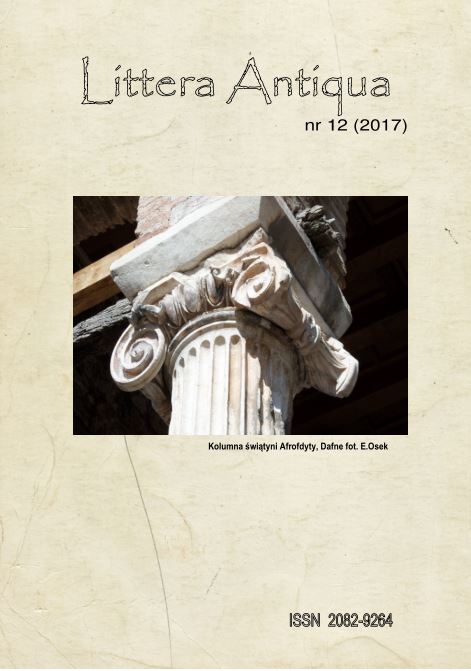
The article discusses the history of the staging of antique dramas in the Television Theater. Chronological analysis of realized shows allows us to understand how many factors influenced the character of television staging. Technological advances in television have largely determined the aesthetics of the Television Theater, which over the years has been more and more eager to tap into the means of expression and the differences between television and film have begun to blur. The end result of the play has always been decisive for many elements – the choice of translation, the poetic sensitivity of the director, the acting workshop, the political situation, technological possibilities and the television reception. The history of television staging also shows the development of Polish theatronic thought and proves the universality of antique content, which despite the passing of years, is losing little of its relevance. A little more than a half-century perspective proves that the drama legacy of ancient Greece is a material for a very diverse stage interpretation. In addition, the article shows the violent departure of antique themes in Polish theater and the gradual depreciation of the educational role of public television.
More...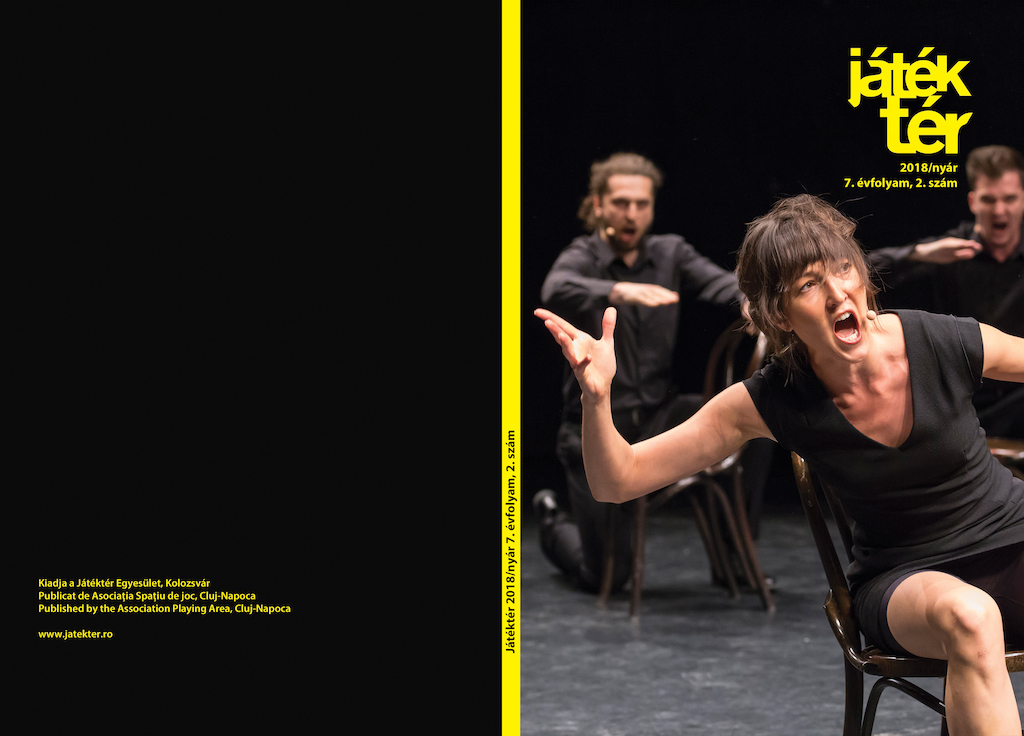
Gianina Cărbunariu’s play, which premiered with the author’s direction in May 2016 at the Radu Stanca National Theatre in Sibiu, appears in our issue in Éva Patkó’s translation. The two parts of the plot happening in different countries are connected by the same phenomenon: corruption. Or more precisely, by what happens when an employee discovers a case of corruption and reveals it to the public. The main characters of Cărbunariu’s drama are the so-called whistle-blowers who are usually common people. The drama deals with real-life events, made famous by the press as well, from the spheres of health-care, public administration and international business. The scripts of these cases are similar in different countries: the fight with employers, superiors and colleagues, with different entanglements of interest, with the general resistance of the environment are followed by long trial procedures which represent heavy emotional, physical and financial burden. Is it worthwhile to fight for the truth? – This is the question posed by Cărbunariu’s drama, which gives different answers through its different characters. In the meantime, it gives an accurate description of the contemporary context of this issue: the functional system of bureaucracy that permeates private and public institutions, personal and common property, as well as the public and private spheres.
More...
The aim of the presented article is to provide an analytical view of the experimentalpresentation of Shakespeare´s tragedy Macbeth at the Košice State Theatre, directed byĽubomír Vajdička (2013). The author chose theorems of German Romanist Hugo Friedrichfrom his monography The Structure of Modern Poetry (1956) as a methodological basis,trying to apply it to the staging of famous drama of William Shakespeare.
More...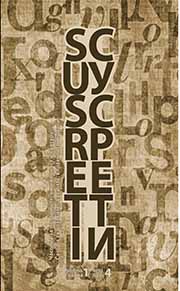

Jedno od nesumnjivo najznačajnih stvaralačkih imena njemačke, ali i svjetske, književno-pozorišne scene XX vijeka jeste Bertolt Breht. Liričar, dramski pisac, pripovjedač, dramaturg i režiser. Reformator i utemeljitelj jedne moderne forme teatra: epskog teatra.
More...